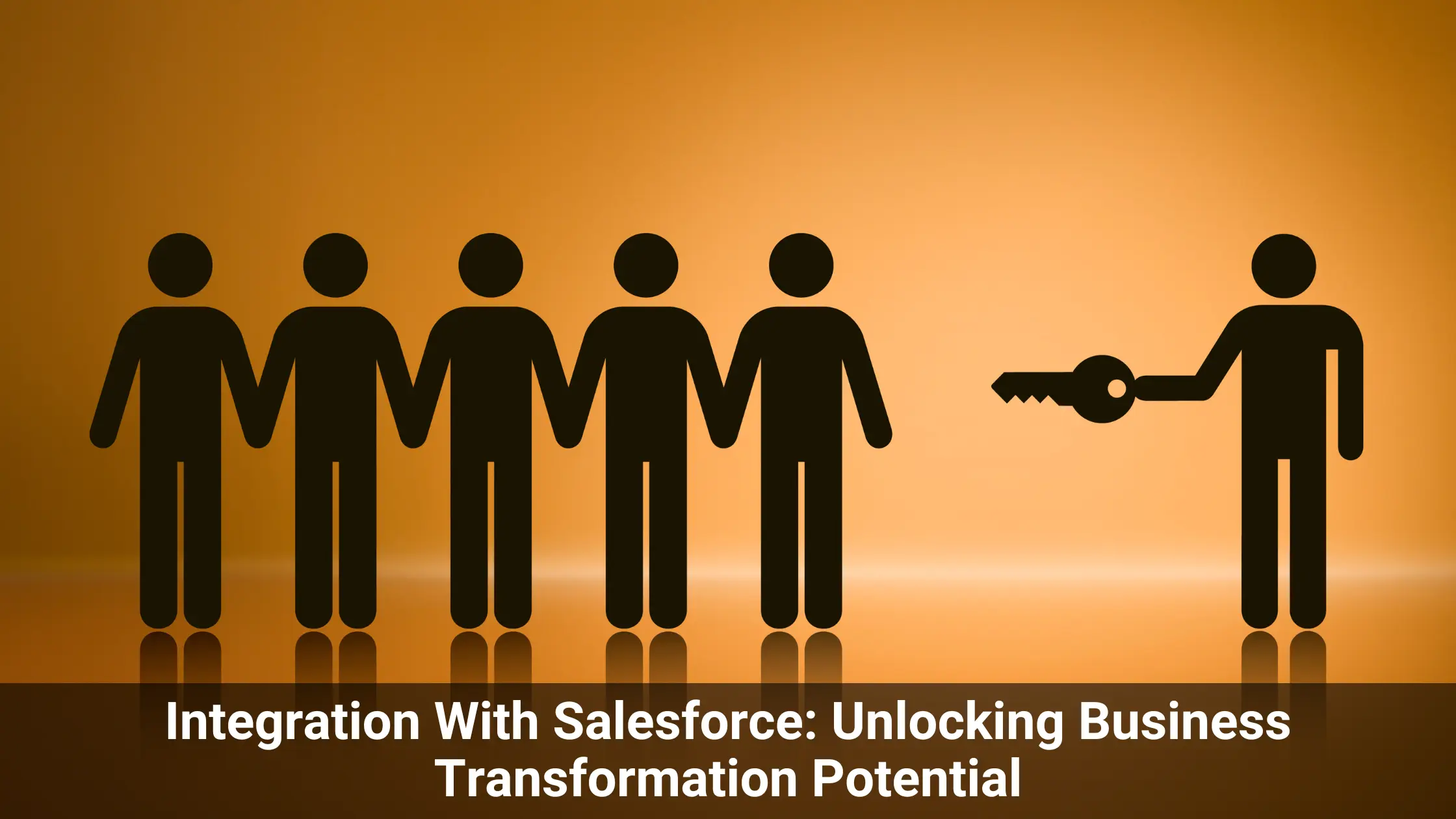Customer Relationship Management (CRM) is a crucial aspect of any successful business. It allows organizations to manage and improve their relationships with customers, streamline sales processes, and enhance overall efficiency. Selecting the right CRM platform is fundamental for achieving these objectives, and two leading contenders in the market are SugarCRM and Salesforce.
SugarCRM and Salesforce are both powerful CRM solutions offering a wide range of features designed to enhance customer interactions, drive sales growth, and boost productivity. SugarCRM provides a flexible, open-source platform that can be tailored to suit the specific needs of your business, while Salesforce is renowned for its robustness, extensive capabilities, and established market presence.
Making the correct CRM platform decision can significantly impact your business's success and bottom line. Choosing the ideal solution can help optimize your workflows, boost customer satisfaction, and streamline your sales processes. This article will delve deeper into the differences and benefits of SugarCRM and Salesforce, aiding you in making an informed decision for your specific business requirements.
Comparison between SugarCRM and Salesforce
1. Overview
SugarCRM and Salesforce are both customer relationship management (CRM) platforms that help businesses manage their sales, marketing, and customer service activities. While they serve a similar purpose, they have key differences that set them apart.
- SugarCRM is an open-source CRM platform that provides businesses with the flexibility to customize and tailor the system to their specific needs.
- Salesforce, on the other hand, is a cloud-based CRM platform that offers a wide range of features and functionalities out-of-the-box.
Both platforms offer a variety of tools and features to improve sales and customer management, but their approach and offerings differ.
2. Features and Functionalities
When it comes to features and functionalities, SugarCRM and Salesforce have their own strengths and unique capabilities.
- SugarCRM provides a comprehensive set of features for sales, marketing, and customer service, including lead management, contact management, opportunity tracking, and case management.
- Salesforce, on the other hand, offers a wide range of features including lead generation, forecasting, pipeline management, AI-powered insights, and marketing automation.
- While both platforms have robust features, Salesforce tends to offer more advanced functionalities and integrations compared to SugarCRM.
Businesses should consider their specific needs and requirements when evaluating the features and functionalities of SugarCRM and Salesforce.
3. Pricing and Cost Analysis
When it comes to pricing, SugarCRM and Salesforce have different models and plans to cater to businesses of different sizes and budgets.
- SugarCRM offers a more flexible pricing model, allowing businesses to choose between monthly subscriptions or perpetual licenses.
- Salesforce, on the other hand, offers various pricing tiers with different levels of features and support.
It's important to carefully analyze the costs associated with each platform, including subscription fees, customization fees, and additional expenses such as app integrations or training services. Businesses should also consider the overall value and return on investment when comparing the pricing of SugarCRM and Salesforce.
4. User Reviews and Feedback
The feedback and reviews from real users can provide valuable insights into the strengths and weaknesses of SugarCRM and Salesforce.
- SugarCRM has received positive feedback for its customization capabilities, flexibility, and open-source community support.
- Salesforce, on the other hand, is often praised for its user-friendly interface, extensive ecosystem, and frequent updates and enhancements.
By considering the experiences and opinions of users, businesses can gain a better understanding of user satisfaction and the overall perception of each platform.
5. Integration and Compatibility
Integration capabilities and compatibility with other software systems are crucial factors to consider when choosing a CRM platform.
- SugarCRM offers flexible integration options with various software systems, including email marketing tools, accounting software, and other business applications.
- Salesforce, being a leading CRM platform, has a broad range of integrations available, making it compatible with widely used platforms and software in businesses.
Businesses should assess their existing software infrastructure and consider the compatibility of SugarCRM and Salesforce with their current and future needs.
6. Customization Capabilities
Customization options are important for businesses to adapt a CRM platform to their specific processes and workflows.
- SugarCRM offers extensive customization capabilities, allowing businesses to tailor the CRM according to their unique requirements.
- Salesforce also provides customization options, although they may require more technical expertise or additional costs in some cases.
Businesses should evaluate the flexibility and scalability of each platform in terms of their customization needs.
7. Support and Customer Service
Support and customer service play a crucial role in ensuring a smooth CRM experience for businesses.
- SugarCRM offers various support channels, including phone and email support, as well as a community-driven support system.
- Salesforce provides comprehensive support through various channels, including phone, email, live chat, and an extensive knowledge base.
Businesses should assess the availability and responsiveness of the support teams of SugarCRM and Salesforce to ensure timely assistance and issue resolution.
8. Implementation and Deployment Process
The implementation and deployment processes of SugarCRM and Salesforce can influence the ease of setup, timeframe, and resources required.
- SugarCRM offers a relatively straightforward implementation process, which can be done either on-premises or in the cloud.
- Salesforce, being a cloud-based CRM, generally has a quicker implementation process compared to SugarCRM.
Businesses should consider their resources and timelines when evaluating the implementation and deployment process of each platform, taking potential challenges or complexities into account.
Scalability and Performance
Assessment of the scalability and performance of SugarCRM and Salesforce
One crucial aspect to consider when choosing a CRM platform is its ability to handle the growth and increasing data volumes of your business. Both SugarCRM and Salesforce offer scalable solutions that can accommodate expanding businesses.
However, it is important to evaluate how well each platform adapts to your specific business needs. SugarCRM provides a highly customizable solution, allowing you to tailor the system to your exact requirements. This flexibility can be a significant advantage for businesses with unique needs or complex processes.
On the other hand, Salesforce offers a more standardized approach with a vast range of pre-built features and integrations. This makes it a great choice for businesses that require quick implementation and prefer a ready-to-use CRM solution without extensive customization.
Furthermore, it is crucial to consider the performance of the CRM platforms. Both SugarCRM and Salesforce have a strong performance track record, providing reliable and responsive systems for users. However, it is always recommended to check for any reported limitations or performance issues that may affect your specific use case.
Evaluate the feedback from existing users to gain insights into any potential performance challenges. This will help you understand whether the platforms can handle the volume of data and user interactions your business requires.
In conclusion, both SugarCRM and Salesforce offer scalable solutions that can adapt to growing business needs and increasing data volumes. However, SugarCRM's customization capabilities may provide a better fit for businesses requiring a highly tailored CRM system, while Salesforce's pre-built features offer a quicker implementation for businesses with a more standardized approach. Assessing these factors and considering any reported limitations or performance issues will assist you in making an informed decision.
Conclusion
After conducting a thorough comparison between SugarCRM and Salesforce, several key findings have emerged. Both platforms offer robust CRM solutions with unique features and capabilities.
- SugarCRM: This platform excels in its customizable options, providing businesses with the ability to tailor the software to their specific needs. It also offers a user-friendly interface and excellent customer support.
- Salesforce: Known for its strong marketing and sales automation features, Salesforce offers a comprehensive suite of tools for streamlining business operations. It has a vast marketplace of integrations and a strong community of users.
Based on specific business requirements, the following recommendations can be made:
- For businesses looking for a highly customizable CRM: SugarCRM would be the ideal choice, as it allows businesses to adapt the software to their unique workflows and processes.
- For businesses focused on marketing and sales automation: Salesforce offers extensive features and integrations that can significantly streamline these areas of operation.
However, it is essential for readers to evaluate their own needs and consider their specific business requirements before making a final decision. Each platform has its strengths and weaknesses, and it is crucial to make an informed decision based on the specific goals and objectives of the business.
Ultimately, whether choosing SugarCRM or Salesforce, businesses should invest time and effort into evaluating the platforms thoroughly, seeking demonstrations, and consulting with experts to ensure they make a decision that aligns with their long-term business goals.
Author Box
Rahul Saini
Rahul Saini is a published author of three books, brand storyteller, and marketing specialist with experience across multiple industries like manufacturing, IT, and publishing. He is an intellectually curious, and creative person who loves to tell stories, read books, and write fiction.





